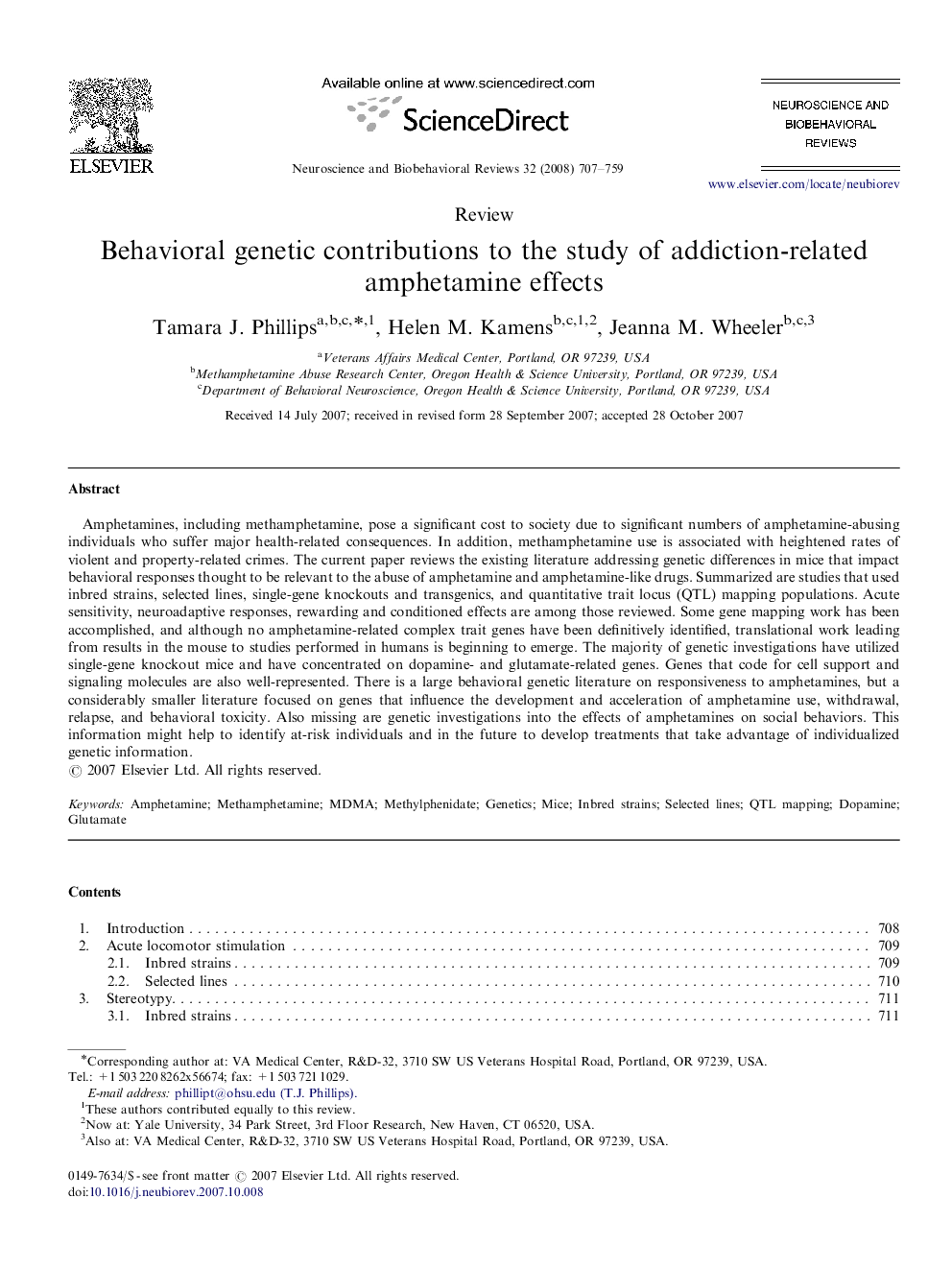| Article ID | Journal | Published Year | Pages | File Type |
|---|---|---|---|---|
| 938228 | Neuroscience & Biobehavioral Reviews | 2008 | 53 Pages |
Amphetamines, including methamphetamine, pose a significant cost to society due to significant numbers of amphetamine-abusing individuals who suffer major health-related consequences. In addition, methamphetamine use is associated with heightened rates of violent and property-related crimes. The current paper reviews the existing literature addressing genetic differences in mice that impact behavioral responses thought to be relevant to the abuse of amphetamine and amphetamine-like drugs. Summarized are studies that used inbred strains, selected lines, single-gene knockouts and transgenics, and quantitative trait locus (QTL) mapping populations. Acute sensitivity, neuroadaptive responses, rewarding and conditioned effects are among those reviewed. Some gene mapping work has been accomplished, and although no amphetamine-related complex trait genes have been definitively identified, translational work leading from results in the mouse to studies performed in humans is beginning to emerge. The majority of genetic investigations have utilized single-gene knockout mice and have concentrated on dopamine- and glutamate-related genes. Genes that code for cell support and signaling molecules are also well-represented. There is a large behavioral genetic literature on responsiveness to amphetamines, but a considerably smaller literature focused on genes that influence the development and acceleration of amphetamine use, withdrawal, relapse, and behavioral toxicity. Also missing are genetic investigations into the effects of amphetamines on social behaviors. This information might help to identify at-risk individuals and in the future to develop treatments that take advantage of individualized genetic information.
